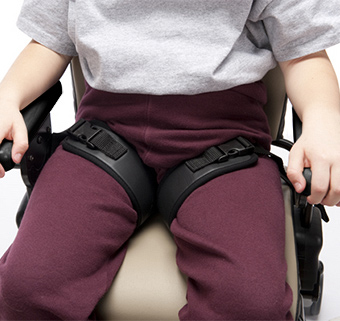Studying Neurodevelopmental Disorders with the Rifton Activity Chair
| November 2015
From school classrooms to radiology departments to hospital feeding clinics, the Rifton Activity Chair meets a range of positioning needs in a variety of environments.
Recently we learned of yet another clinical setting where the Activity Chair has found a niche: in the study of neurodevelopmental disorders at the UC Davis MIND Institute, an internationally respected research facility. Here, the Activity Chair provides exclusive and comfortable seated positioning options for children and adults who undergo the cognitive and psychophysiological data collection studies necessary for research. Here’s a sampling of the activities being conducted at the MIND Institute:
Studies
- electroencephalogram (EEG) sessions
- infra-red eye tracking
- biofeedback
- cognitive testing
- potentiated startle
- physiological assessments
Frequently researched diagnoses
- autism spectrum disorders (ASD)
- attention-deficit/hyperactivity disorder (ADHD)
- chromosome 22q11.2 deletion syndrome
- Down syndrome, fragile X syndrome
- intellectual disabilities

Because the Rifton Activity Chair with its supports and accessories is fully adjustable (tool-free) with built-in growth, it accommodates the participants of all sizes, ages and diagnoses who sit for these various studies. For this purpose, some of the particularly useful features and accessories of the chair are tilt-in-space, winged headrest, trunk laterals, pelvic harness and dynamic spring (for those with a higher level of sensory-seeking demands).
Dr. David Hessl, Director of the Translational Psychophysiology and Assessment Lab at the MIND Institute, write:
“We would like to take this opportunity to publically thank the team at Rifton for their generous and thoughtful donation of the large Activity chair and numerous accessories to our laboratory here at the MIND Institute.”
 The University of California, Davis, MIND Institute is a collaborative international research center started by families of children with autism spectrum disorders. MIND stands for Medical Investigation of Neurodevelopmental Disorders.
The University of California, Davis, MIND Institute is a collaborative international research center started by families of children with autism spectrum disorders. MIND stands for Medical Investigation of Neurodevelopmental Disorders.




